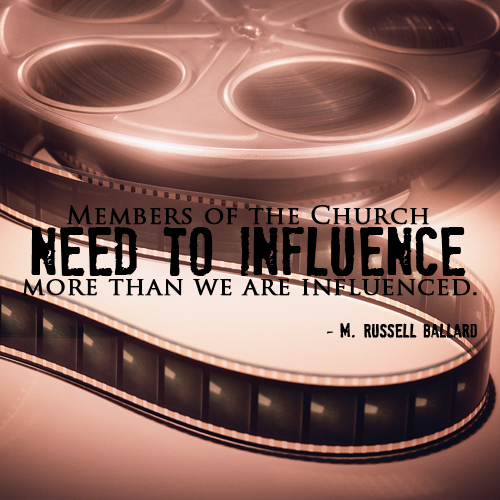
by Charlotte Wilson | Sep 12, 2013 | About Mormons
Even just 50 years ago, pornography was something you had to actively search for. Today, salacious and inappropriate images and content will find you. Contrary to what the world may say, pornography is addictive and destructive. Not only does pornography destroy the users spirit, but in so many cases it destroys family relationships as well. The Church of Jesus Christ of Latter-day Saints (often inadvertently referred to as the Mormon church) has taken a decided stand against pornography and has gone so far as to create a website dedicated to both the prevention of and the recovery from pornography.[1]
Prevention and Recovery
 While certainly The Church of Jesus Christ believes that prevention is the best way to deal with pornography and its addictive properties, the church is also very aware that many of its members do indeed struggle with pornography. This new website, titled “Overcoming Pornography through the Atonement of Jesus Christ” (found at overcomingpornography.org), has resources to help with both prevention and recovery. (more…)
While certainly The Church of Jesus Christ believes that prevention is the best way to deal with pornography and its addictive properties, the church is also very aware that many of its members do indeed struggle with pornography. This new website, titled “Overcoming Pornography through the Atonement of Jesus Christ” (found at overcomingpornography.org), has resources to help with both prevention and recovery. (more…)

by Charlotte Wilson | Aug 31, 2013 | About Mormons
If you’re at all familiar with The Church of Jesus Christ of Latter-day Saints (often inadvertently referred to as the Mormon church), you’ll know that the church has a bit of culture to it. Mormons have distinct cultural traditions and stereotypes. Tamu Smith and Zandra Vranes are two women who both embrace their black heritage and tackle missionary work through their blog and podcast, “Sistas in Zion.” Sometimes the best way to understand Mormon culture is to laugh at it.[1]
Embracing Their Own Cultural Heritage
 While Tamu and Zandra didn’t meet and become friends until later in their lives, both women had to come to grips with the Caucasian population in Utah. When each of them moved to Utah, they expected to find instant connection with the other church members around them. What they didn’t expect was difficulty in connecting because of different cultural backgrounds.
While Tamu and Zandra didn’t meet and become friends until later in their lives, both women had to come to grips with the Caucasian population in Utah. When each of them moved to Utah, they expected to find instant connection with the other church members around them. What they didn’t expect was difficulty in connecting because of different cultural backgrounds.
The Church of Jesus Christ understood this difficulty that its black members were facing and set up the Genesis Group, an organization dedicated to serving the needs of black Mormon and other Mormon minorities. Both Tamu and Zandra found great strength and comfort in the Genesis Group. “It was a breath of fresh air,” Zandra expressed. “That’s where I met Tamu.” (more…)

by Charlotte Wilson | Aug 27, 2013 | About Mormons
Languages like ancient Greek and Latin are dead, right? No one actually speaks them anymore. That may be true, but in the world of academia, the study of those languages is alive and well. Humanities students of Brigham Young University, an institution owned by The Church of Jesus Christ of Latter-day Saints (a faith often inadvertently referred to as the Mormon church), have taken the study of classic languages seriously and have made an impression in national competitions.[1]
BYU Students Rank Highly in Competition
 In the National College Greek Exam, six BYU students ranked in the top 20 of contestants. BYU has always brought impressive competitors, and this year those students raised the bar even further. The National College Greek Exam is a test of 40 questions that students have 50 minutes to answer. Questions cover Greek grammar and translation. Two BYU students tied for second place, and four others placed in the top 20. (more…)
In the National College Greek Exam, six BYU students ranked in the top 20 of contestants. BYU has always brought impressive competitors, and this year those students raised the bar even further. The National College Greek Exam is a test of 40 questions that students have 50 minutes to answer. Questions cover Greek grammar and translation. Two BYU students tied for second place, and four others placed in the top 20. (more…)

by megan | Aug 27, 2013 | About Mormons
A CNN article in July of 2013 explored the reasons why Millennials—the young adult generation who came of age in the decade of the 2000s—are leaving their churches. Rachel Held Evans’ article sparked an instant reaction in other news organizations and the blogosphere in general, with experts, scholars, and “Average Joes” chiming in with their two cents on whether or not Evans was right. In response, the Salt Lake City-based Deseret News ran a blog post from Sarah Shumway titled “Why I’m Staying: Replying to CNN’s ‘Why Millennials are Leaving the Church’.” In her article, Shumway listed five reasons why she believes The Church of Jesus Christ of Latter-day Saints, (often inadvertently referred to as the “Mormon Church”), isn’t losing its young adults. Her reasons are as follows:
-
We are taught to view our fellow members as our brothers and sisters.
-
We are asked to participate in a given capacity to help the congregation. [This refers to The Church of Jesus Christ’s practice to give members “callings” or assignments to help keep the local congregation running.]
-
Having an unpaid clergy, our church leaders are refreshingly sincere. [Shumway also included a caveat affirming that she was in no way slighting the paid members of other faiths’ clergy, who are also sincere in their efforts to help others.]
-
We are taught to ask questions.
-
Our doctrine is not a laundry list of what we can and cannot do[1].
 Shumway elaborated on each point, explaining why she believes The Church of Jesus Christ is retaining more of its young adult membership than other religions are. Shumway believes that The Church of Jesus Christ is doing what Evans’ article asks churches to do: extend more substance to Millennials rather than just more modern services and buildings; encourage them to ask questions; ask for their feedback; strive for political neutrality; and show them a place where they can find the Savior Jesus Christ.
Shumway elaborated on each point, explaining why she believes The Church of Jesus Christ is retaining more of its young adult membership than other religions are. Shumway believes that The Church of Jesus Christ is doing what Evans’ article asks churches to do: extend more substance to Millennials rather than just more modern services and buildings; encourage them to ask questions; ask for their feedback; strive for political neutrality; and show them a place where they can find the Savior Jesus Christ.
As a member of both The Church of Jesus Christ and the Millennial generation, I agree with both Evans and Shumway. Studies conducted by the Pew Research center,universities, and other agencies have increasingly shown that Millennials are leaving the church. These studies also provide insight into the all-important question Evans attempts to answer: “why are they leaving?” I also agree with Shumway that The Church of Jesus Christ offers what many Millennials are seeking in religion: a firm foundation on the gospel of Jesus Christ, a culture that encourages questions, and a place where they can, ideally, find acceptance. (more…)

by dwhite | Aug 19, 2013 | About Mormons
Looking for Clean Family Entertainment?
Are you one of the many people who struggle to find wholesome entertainment to enjoy with family members? I know my parents cancelled their cable subscription, because they got so tired of offensive commercials and programs. It can be especially difficult to find clean comedy. I am a sometimes fan of Saturday Night Live and the Big Bang Theory, but you never know when you’re going to be bombarded with something vulgar and offensive, though it’s a virtual guarantee at least one offensive tidbit will come across in any given episode.
Studio C Is Beginning Its Third Season
 Trying to meet this problem and to come up with a solution, students at Brigham Young University in Provo, Utah, began a season on BYUtv called “Studio C,” originally named after the studio in which it was filmed. The idea for the show came from Divine Comedy, a comedy troupe at BYU. It was originally intended for only one season. It was kind of an experiment to see if there was even enough interest to keep something like it going.
Trying to meet this problem and to come up with a solution, students at Brigham Young University in Provo, Utah, began a season on BYUtv called “Studio C,” originally named after the studio in which it was filmed. The idea for the show came from Divine Comedy, a comedy troupe at BYU. It was originally intended for only one season. It was kind of an experiment to see if there was even enough interest to keep something like it going.
Now Studio C is in its third season, which began filming July 19, 2013. Its diverse fan base continues to grow. It seems the clean comedy appeals to a much broader audience than just “Mormons” (members of The Church of Jesus Christ of Latter-day Saints, often inadvertently referred to as Mormons rather than Latter-day Saints). (more…)

 While certainly The Church of Jesus Christ believes that prevention is the best way to deal with pornography and its addictive properties, the church is also very aware that many of its members do indeed struggle with pornography. This new website, titled “Overcoming Pornography through the Atonement of Jesus Christ” (found at overcomingpornography.org), has resources to help with both prevention and recovery. (more…)
While certainly The Church of Jesus Christ believes that prevention is the best way to deal with pornography and its addictive properties, the church is also very aware that many of its members do indeed struggle with pornography. This new website, titled “Overcoming Pornography through the Atonement of Jesus Christ” (found at overcomingpornography.org), has resources to help with both prevention and recovery. (more…)



